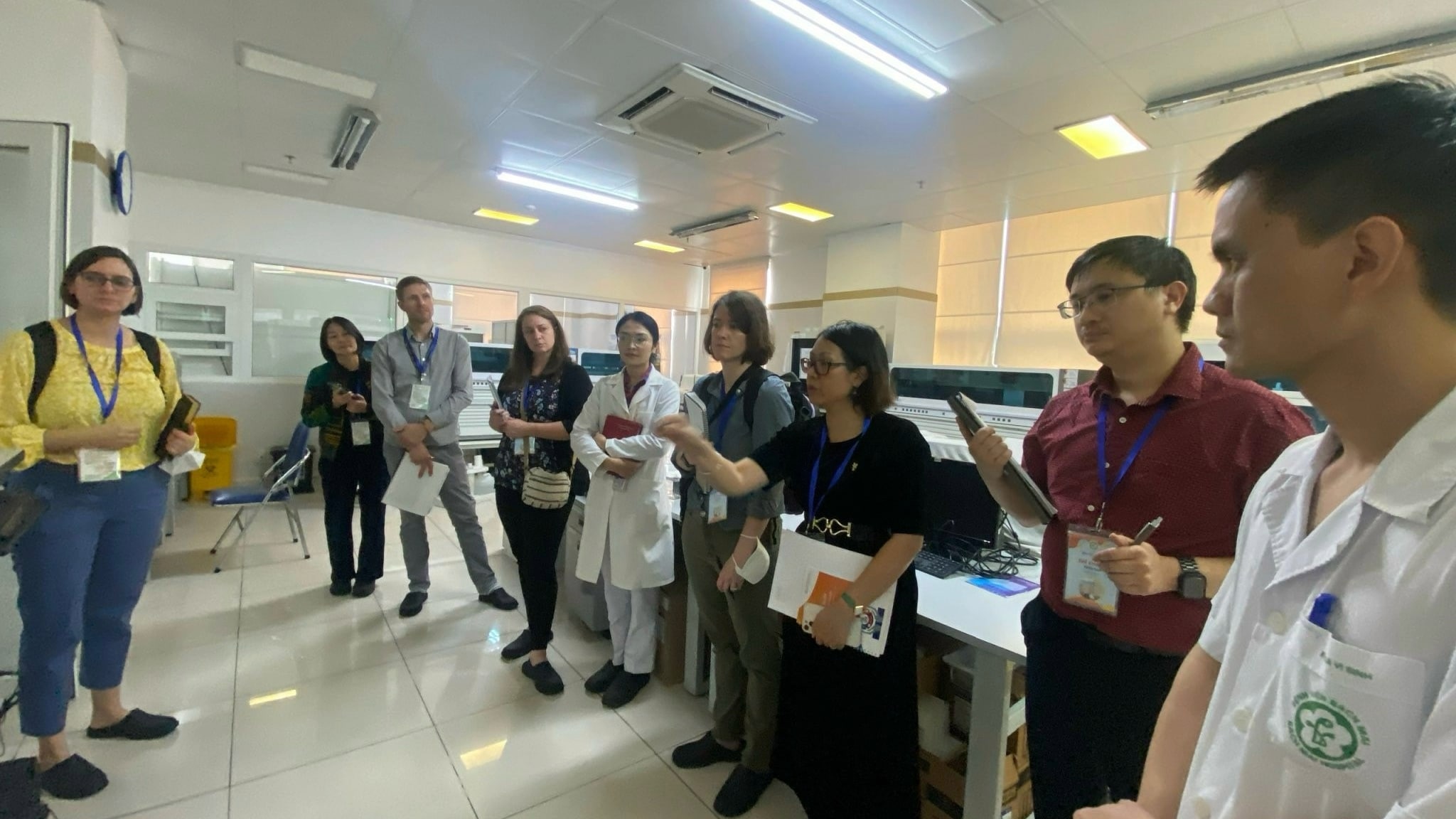At a glance
- The COVID-19 pandemic underscored the importance of genomic sequencing to track emerging variants of the SARS-CoV-2 virus, prompting CDC to collaborate with Vietnam's Ministry of Health to quickly set up their own genomic sequencing network.
- In 2023, CDC launched a pilot program using influenza surveillance to identify other respiratory viruses.
- By training local experts to use genetic sequencing to monitor diseases, CDC is helping Vietnam to prepare for infectious diseases worldwide.
Challenge

As the lead for CDC's global health security efforts, the Division of Global Health Protection works side-by-side with the Vietnam Ministry of Health (MOH) to enhance the country's ability to prevent, detect, and respond to infectious disease outbreaks faster.
One critical tool in Vietnam's toolbox is genomic sequencing. The COVID-19 pandemic highlighted the power of genomic sequencing to track emerging variants of the SARS-CoV-2 virus. As a result, Vietnam's MOH responded swiftly to the crisis, setting up their own genomic sequencing network with CDC's support.
CDC's Efforts
Working with partners and colleagues, CDC has since built upon this foundation by using the power of genomic sequencing to detect emerging threats, believing it could have a powerful impact on protecting communities' health.
In 2023, CDC's laboratory experts embarked on an innovative pilot by using its existing influenza surveillance in hospitals to improve their ability to identify more respiratory viruses using genomic sequencing. They partnered with the Vietnam Administration of Medical Services, Bach Mai Hospital, and the Association of Public Health Laboratories to procure state-of-the-art equipment, improve the laboratory at Bach Mai Hospital, and train laboratorians to conduct genomic sequencing and analyze data for public health action.
Impact
The impact of these efforts has been significant and far-reaching. By enhancing the laboratory capabilities at Bach Mai Hospital and training local laboratorians, CDC has significantly improved their ability to detect and analyze respiratory viruses. This, in turn, has enabled more precise tracking and response to emerging threats, contributing to a more robust public health system in Vietnam.
Broader Implications
By equipping local experts with skills and resources to harness genetic sequencing for surveillance, CDC is strengthening Vietnam’s ability to anticipate threats, take preemptive action, and, ultimately, prevent illness, hospitalizations, and deaths – throughout the country and, ultimately, around the world.
